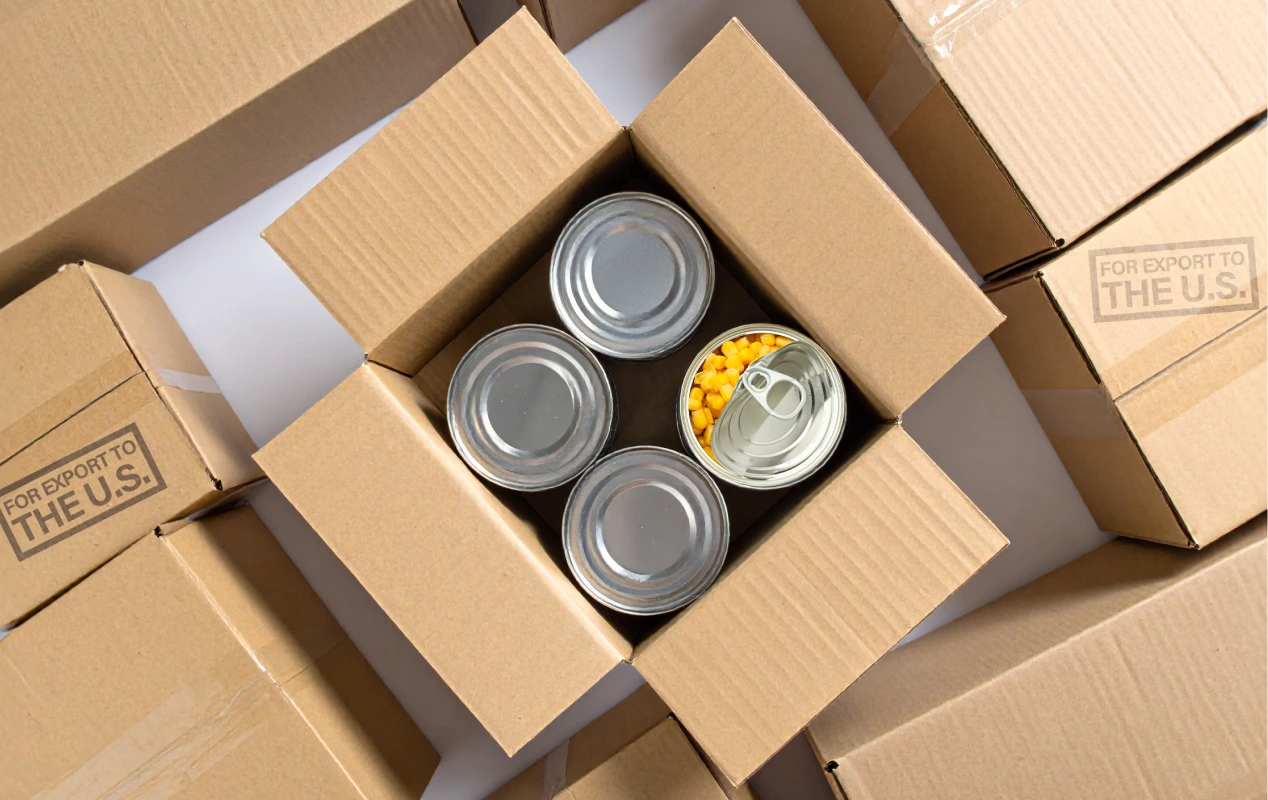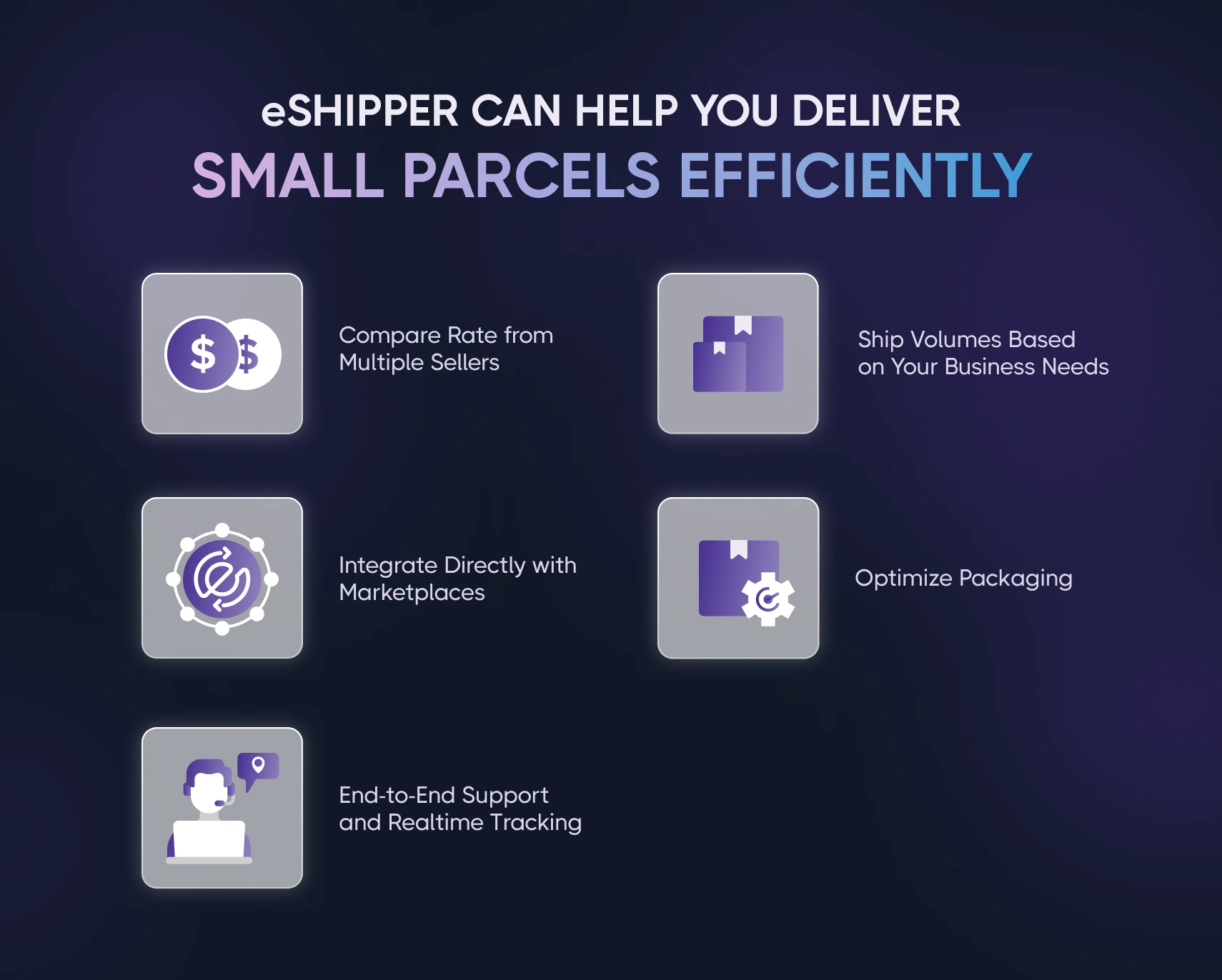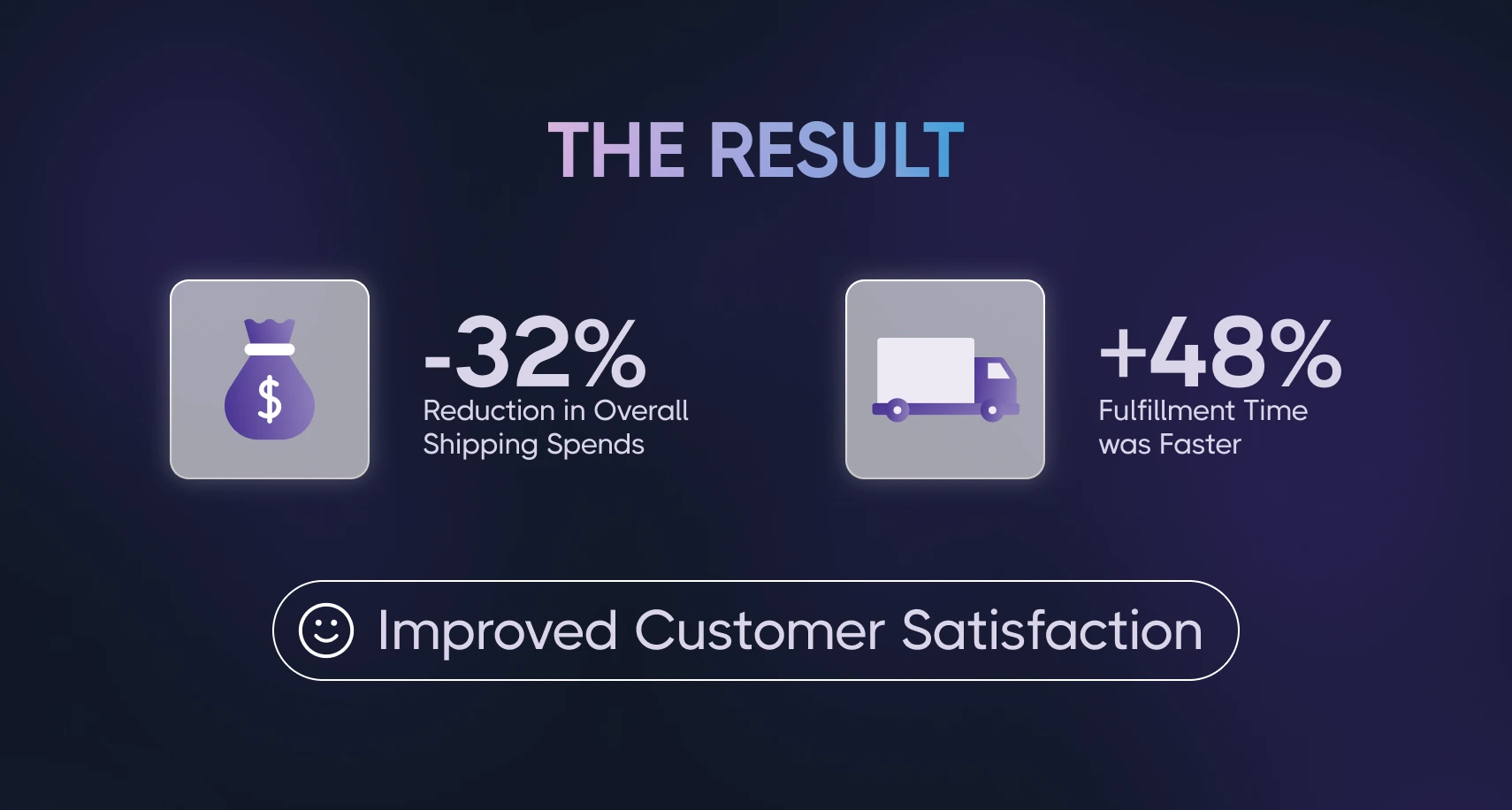
Roxann Sinclair
10 mins read
9 mins read

Rizwan Datoo is a logistics and fulfillment consultant at eShipper specializing in D2C and B2B shipping solutions. He supports startups and established brands by simplifying complex shipping challenges and building efficient, reliable supply chains.

You’re an eCommerce seller who owns a fast-growing beauty brand in Vancouver. Now, each week, you ship hundreds of lightweight items including serums, lip balms, and travel-sized kits, across Canada and the U.S. Although each parcel weighs under two pounds, your company’s monthly shipping bill keeps rising.
When you take a closer look at the numbers, you suddenly have this revelation that delivery costs have started to outpace your typical marketing spends for your business.
This is a common challenge you might be facing as an eCommerce seller especially if you're managing small parcel delivery for lightweight DTC items.
Initially, you may have been under the impression that small parcel shipping is efficient and cost-effective. However, if you’re not careful, it can quickly transform into a source of overspending without you even realizing.
This guide will help you identify factors that increase your small parcel shipping costs. You will also explore how eShipper can help your eCommerce business reduce costs while improving delivery reliability.
If your package meets the following criteria, it’s a small parcel:
| Criteria | Description |
| Weight | Should be less than 2 kgs or 4.4 lbs |
| Dimensions | Should fit in a standard courier envelope or a small box |
| Handling | Should ideally be able to be delivered without any palletization or special handling |
| Recommended for | DTC products including apparel, accessories, cosmetics, electronics, and supplements |
Small parcels are usually shipped using standard courier services including Canada Post, Purolator, UPS, or FedEx.
Chances are you most likely might be overlooking dimensional weight (DIM weight) charges.
If you aren’t already aware, Dim weight charges occur when your shipment courier bills you based on package volume rather than the actual weight of your parcel.
Here’s how you can calculate it:
DIM Weight (kg) = (Length x Width x Height in cm) ÷ 5000
Note: Most couriers including Canada Post use a divisor between 5000 and 6000
To give you an example, imagine you are shipping a light scarf in a bulky box approximately 30 cm x 30 cm x 20 cm. This would have a billable weight of:
(30 x 30 x 20) ÷ 5000 = 3.6 kg.
Even if the actual weight is just 0.5 kg.
If you don’t have access to a multi-carrier platform, you might just end up shipping with a single carrier which also means you are missing out on lower rates for specific regions or package types. In the scenario of a disruption, your carrier might not even be operational and that can impact your shipment delivery times significantly. As a seller, you’d know that means unhappy customers.
Even for a small parcel shipment, getting the packaging right is important since the container you use for packaging can make all the difference when it comes to reducing shipping costs. Also, since most consumers are also environment conscious, you should opt for prep and shipping partners that can help with sustainable shipping.
Manual order processing, printing, and tracking takes time and can easily lead to shipping errors. How do you eliminate this from your shipping process? Use an automated platform that will help you streamline shipping, while saving you money and visibly improving delivery times for your small parcels.
According to a recent report published by Statistics Canada, the average domestic parcel shipping cost has increased by at least 9% since 2021, because of fuel surcharges, inflation, and rising demands for faster deliveries.
| Shipping Zone | Average Rate (0.5 kg parcel) |
| Local | $10.15 |
| Regional | $13.25 |
| National | $17.75 |
Table Source: Canada Post, StatCan
For cross-border eCommerce shipments, these costs are at least 30–50% higher, depending on the carrier you choose and the delivery speed you may be looking for.
Here’s what you should be looking for as a small parcel shipper if you want to minimize costs and get faster delivery for your customers:

eShipper’s multi-solution shipping platform is built to help you scale your eCommerce business. Here’s how:
Compare rates from 100+ top carriers including Canada Post, UPS, FedEx, Canpar, DHL, and Purolator. Our platform uses real-time algorithms to evaluate cost, delivery speed, and service reliability based on destination, parcel size, and weight. This will help you choose the cheapest and fastest service for each shipment.
Whether you ship 10 or 1,000 packages per week, you get access to volume-based pricing through eShipper’s competitive courier rates.We consolidate shipments using dimensional optimization techniques, such as SKU bundling and cartonization, to maximize box utilization and minimize billable weight. This reduces overall shipping costs.
You can sync your orders from Shopify, Amazon, Walmart, WooCommerce, and other platforms. You don’t have to enter the details manually each time. For small parcel sellers, this means your orders are automatically synced, and shipping details are populated without manual entry, minimizing human error and speeding up label generation and fulfillment.
Our team conducts packaging audits to identify cost-saving opportunities, such as right-sizing parcel containers, using recyclable materials, and minimizing void fill. This reduces dimensional weight charges and improves your brand’s sustainability footprint.
You can track every shipment from the first mile to the last with real-time updates and hands-on support from Account Managers. eShipper offers full visibility with milestone updates and exception handling.
A Toronto-based skincare brand was shipping hundreds of 100 ml serums and moisturizers across Canada and to the U.S. daily.
Most packages weighed under 0.8 kg.
The Challenge:
The Solution:
The Result:

They were able to improve customer satisfaction through real-time tracking and faster delivery.
Here’s a comparison of popular low-cost courier services for small parcels (under 1 kg):
| Courier | Best For | Average Cost (0.5 kg, domestic) | Transit Time |
| Canada Post Expedited | Local deliveries | $10–$12 | 1–3 days |
| Purolator Ground | Regional shipments | $12–$15 | 2–5 days |
| UPS Standard | National reach | $14–$18 | 3–6 days |
| FedEx Ground | E-commerce orders | $13–$17 | 2–5 days |
Note: These costs can vary depending on the destination and the kind of packaging. For the exact prices, using a rate-comparison platform like eShipper is more reliable than relying on estimated rates.
A common misconception is that 3PLs are only for large or palletized shipments. But if you’re regularly shipping small parcels, fulfillment through a tech-enabled 3PL could be a smart move for your business.
According to Statista, small parcel volumes in Canada are expected to increase by 1.7 billion units in 2026, at an annual growth rate of 6.5%.
Meanwhile, a recent Canada Post Insights Study noted that:
This means that if your business is offering affordable and reliable small parcel shipping, you can get a competitive edge.
Sustainability Tip: Optimize Packaging
Packaging plays a key role in small parcel shipping. Oversized or non-recyclable packaging increases cost and hurts your sustainability goals.
Here’s are some resources you can refer to as an eCommerce seller shipping small parcels in Canada and the U.S., to make sure you stay updated:
If you're an eCommerce seller shipping lightweight items under 4.5 lbs, small parcel shipping can be both cost-effective and efficient with the right process:
By integrating technology and logistics into one platform, eShipper helps you access cost-effective small parcel delivery without compromising on delivery speed or service quality.
Any shipment which is under 4.5 lbs and within standard courier box/envelope size. These items are usually DTC specific.
To reduce shipping costs and save time, use a rate comparison platform, optimize packaging, and automate.
Yes, eShipper offers international shipping to the U.S. and beyond, with customs support and discounted rates.
No. eShipper supports businesses of all sizes, including startups and solo sellers, with no minimum shipping volume required.
You can use your own packaging, but eShipper can recommend and supply optimized packaging to reduce costs.